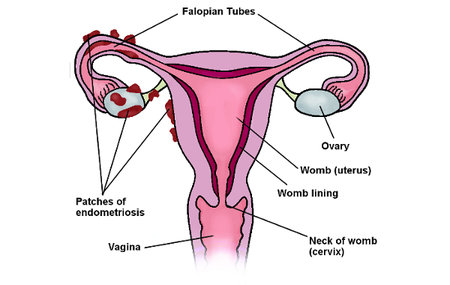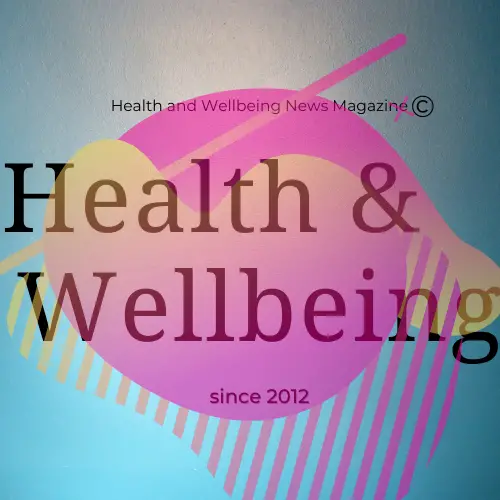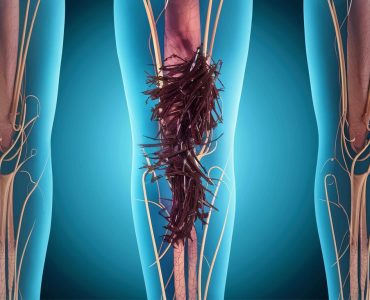Endometriosis is a chronic and often debilitating condition characterized by the growth of endometrial tissue outside the uterus. This abnormal tissue growth can cause severe pain, infertility, and other complications. Understanding the symptoms, causes, and stages of endometriosis is crucial for early diagnosis and effective management. Let’s delve deeper into this complex condition.

What are 3 Symptoms of Endometriosis?
Endometriosis can present with a variety of symptoms, including:
- Pelvic Pain: Chronic pelvic pain, often worsening during menstruation, is a hallmark symptom of endometriosis.
- Painful Periods: Dysmenorrhea, or severe menstrual cramps, is a common symptom experienced by women with endometriosis.
- Painful Intercourse: Pain during or after sexual intercourse, known as dyspareunia, is another common symptom of endometriosis.
Other common symptoms of endometriosis:
| Symptom | Description |
|---|---|
| Pelvic Pain | Chronic pelvic pain is the most common symptom of endometriosis, often described as a dull, throbbing, or stabbing pain in the pelvic area, lower abdomen, or lower back. |
| Painful Menstruation | Dysmenorrhea, or painful periods, is a hallmark symptom of endometriosis. Women may experience severe cramping, pelvic pain, and lower back pain during menstruation. |
| Painful Intercourse | Dyspareunia, or painful intercourse, can occur due to endometrial lesions affecting the pelvic region, causing discomfort or pain during sexual activity. |
| Heavy Menstrual Bleeding | Menorrhagia, or heavy menstrual bleeding, is common in women with endometriosis. Excessive bleeding during periods may lead to anemia and fatigue. |
| Irregular Menstruation | Endometriosis can cause irregular menstrual cycles, including spotting between periods, shorter or longer cycles, or unpredictable bleeding patterns. |
| Chronic Fatigue | Many women with endometriosis experience chronic fatigue, which may be attributed to hormonal imbalances, pain, poor sleep quality, and emotional distress. |
| Gastrointestinal Symptoms | Endometrial implants on the bowels or intestines can cause gastrointestinal symptoms such as bloating, constipation, diarrhea, nausea, or abdominal cramping. |
| Painful Bowel Movements | Dyschezia, or pain during bowel movements, may occur when endometrial implants affect the rectum or colon, leading to discomfort, straining, or rectal bleeding. |
| Urinary Symptoms | Endometriosis affecting the bladder or ureters can cause urinary symptoms such as frequent urination, urgency, pain or discomfort during urination, or blood in the urine. |
| Infertility | Endometriosis is a leading cause of infertility in women. Adhesions, inflammation, and anatomical distortions caused by endometrial growths can impair fertility and conception. |
| Other Symptoms | Additional symptoms may include lower back pain, pelvic pressure, ovarian cysts, mood swings, depression, anxiety, and difficulty concentrating. |
What is the Cause of Endometriosis?
The exact cause of endometriosis remains unknown, but several theories have been proposed, including:
- Retrograde Menstruation: Menstrual blood containing endometrial cells flows backward through the fallopian tubes into the pelvic cavity, where it implants and grows.
- Hormonal Imbalance: Abnormal levels of estrogen and progesterone may contribute to the development and progression of endometriosis.
- Immune System Disorders: Dysfunction of the immune system may allow endometrial tissue to implant and grow in abnormal locations.
What Happens When a Woman Has Endometriosis?
When a woman has endometriosis, the abnormal growth of endometrial tissue can lead to inflammation, scarring, and adhesions (abnormal tissue connections) in the pelvic cavity. This can cause a range of symptoms, including pelvic pain, infertility, painful menstruation, and gastrointestinal issues.
What are the Symptoms of Stage 4 Endometriosis?
Stage 4 endometriosis, also known as severe endometriosis, is characterized by extensive implants and adhesions throughout the pelvic cavity. Symptoms of stage 4 endometriosis may include:
- Severe pelvic pain that significantly impacts daily activities.
- Chronic fatigue and exhaustion.
- Difficulty conceiving or infertility due to damage to the reproductive organs.
In conclusion, endometriosis is a complex and often challenging condition that can have a significant impact on a woman’s quality of life. By understanding its symptoms, causes, and stages, women and healthcare providers can work together to develop effective treatment plans and improve outcomes for those living with endometriosis.
-

For about 5 years now, I have been on my journey towards a healthier lifestyle. My main goal? To feel great both on the inside and outside! Since then, I've been all about exploring different ways to boost my overall well-being, with a special emphasis on keeping my mind as healthy as my body. Finding balance has become my mantra, and let me tell you, it's been a game-changer! Whether I'm sweating it out with some cardio, hitting the trails for a rejuvenating hike, diving into deep conversations, or simply enjoying the company of my furry companion - mini Schnauzer Yuki, life just feels so much better! Drop me a line anytime – I'm always here for a friendly chat about health and happiness!




